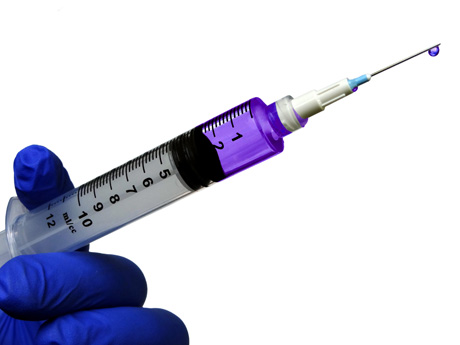For those of us whose lives are blessed by our dogs, their health is very important, and vaccinating for disease is part of our routine care regimen.
Vaccines are given to introduce the disease to the dog in a weakened or modified state (a live vaccine) or a killed state, in order to stimulate the immune system to produce antibodies to fight it.
The American Animal Hospital Association (AAHA) lists the following possible side effects from vaccines to include injection site reactions, lack of appetite, lethargy, fever, allergic reactions, autoimmune problems, neurologic problems, and rarely sarcoma or other tumors. While these are not common reactions, they are a factor in our decisions regarding a vaccine protocol.
We know that vaccinations offer protection from parvovirus, distemper, rabies and other illnesses. The question is what is routine? What is the right balance between preventive vaccination, protection, and over vaccination? Some veterinarians promote annual boosters, some every two years, and others every three years. Over-vaccinating can have negative consequences so titers can help by indicating whether a previous vaccine is still protecting your dog.
While Titer testing used to be complicated and expensive, the availability of in-practice test kits has changed that, so now titers can be a part of routine and preventive care and provide information to develop a customized vaccination protocol for your best friend.
What is a “Titer”? A titer is a measure of the antibodies in the blood for a specific disease. A high titer number indicates that your dog has the antibodies to fight exposure to the specific disease, giving them immunity.
A low titer number indicates that revaccination might be warranted in order to properly protect your dog.
The AAHA guidelines list titers as appropriate for determining immunity to parvovirus, distemper and hepatitis. Other vaccinations like bordetella and lymes, are not effectively measured with titers as they only provide short-term protection.
What about Rabies you ask? Titers for Rabies vaccines are considered an accurate indication of immunity. That being said, rabies vaccinations are mandated by state law and states do not accept titers.
The whole idea behind titers is to limit unnecessary exposure to vaccines. The question is are titers an effective way to measure protection? As with all vaccines, there is controversy and some experts say that titers measure antibodies and not “cell-mediated” immunity, considered the true measure of protection from a given disease.
The truth is that there is no one vaccination protocol that is right for every dog. So general guidelines are developed that will protect most but also possibly over-vaccinate many. It makes more sense to come up with a customized protocol for your dog based upon genetics, health status, age, where you live, and your dog’s lifestyle. For example, dogs that spend a lot of time in the woods and exploring the great outdoors probably have different vaccination needs than a dog who rarely leaves the house.
For those using titers, the AAHA recommends the following schedule:
Puppies should receive a titer about two weeks after their final puppy series to ensure they are properly immunized. Adult dogs should be tested every three years.
Ronald Schultz, DVM of the University of Wisconsin, considered the expert in titers, discussing the value of vaccine titer testing, “You should avoid vaccinating animals that are already protected, and titer testing can determine if adequate, effective immunity is present. It is often said that the antibody level detected is ‘only a snapshot in time.’ That’s simply not true; it is more a ‘motion picture that plays for years.’"
“More than a decade of experience with vaccine titer testing and published studies in journals show that 92 – 98% of dogs and cats that have been properly vaccinated develop good measurable antibody titers to the infectious agent measured. In general, serum antibody titers to the “core” vaccines along with any natural exposures last a minimum of 7 – 9 years, and likely are present for life,” W. Jean Dodds, DVM
http://www.thebark.com/content/titer-testing
http://www.petmd.com/blogs/fullyvetted/2010/june/titering_or_vaccines-10182
http://www.whole-dog-journal.com/issues/17_6/features/Vaccine-Titer-Tests_20988-1.html
http://drjeandoddspethealthresource.tumblr.com/post/33393350071/vaccines-titer-testing-animals


